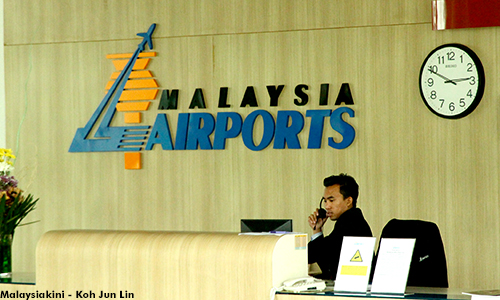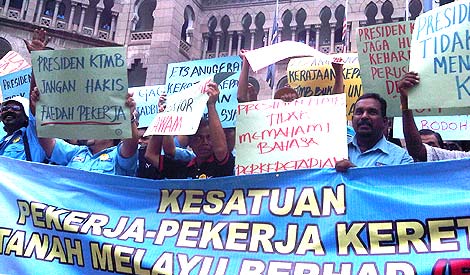
The ongoing debate on the future of government-linked companies (GLCs) and their management is complex and multifaceted. These articles contributing to this discussion are based on the third Tun Hussein Onn Chair lecture delivered by Jomo K Sundaram, now a member of the Council of Eminent Persons.
Privatisation has not provided the miracle cure for the problems (especially inefficiencies) associated with the public sector. The public interest has also rarely been effectively served by private interests taking over public sector activities.
More recently, growing concern over the adverse consequences of privatisation has spawned research worldwide.
As a matter of fact, both the IMF and World Bank have long been aware of such likely adverse impacts of privatisation. For example, IMF research acknowledged that privatisation “can lead to job losses, wage cuts and higher prices for consumers”. Similarly, World Bank research on Argentina, Bangladesh, Chile, Ghana, Malaysia, Mexico, Sri Lanka and Turkey found large-scale employment losses when big state-owned enterprises (SOEs) were privatised.
In the US, UK, Canada, Chile, Sweden, Russia, Poland, Ukraine, Bulgaria, China, Hong Kong, Malaysia, the Philippines, South Korea, Sri Lanka and Bangladesh, privatisation in 1999-2004 adversely affected female workers more. IMF and World Bank safety net or compensation proposals were either too costly for the public treasury or too administratively burdensome for many developing countries.
Diverting private capital from productive new investments to buy over existing publicly-held assets actually slowed, rather than enhanced, economic growth. This effectively involves significant diversion of potentially productive new investments as such resources are instead used to buy over existing assets, rather than to augment economic capacity. Instead of contributing to growth, this simply changes ownership.
Listing privatised SOEs on the stock market subjects them to short-term managerial considerations, for example, to maximise quarterly firm earnings. This often serves to discourage new investments for the longer term. Such a short-termist focus tends to marginalise the long-term interests of the enterprise, and the nation.
Thus, stock market listing may mean the introduction, perpetuation and promotion of a culture of short-termism. This is often inimical to the interests of corporate and national development more generally, and the improvement of economic welfare more broadly.
Furthermore, both evenly distributed as well as concentrated share ownership undermine corporate performance of the privatised enterprise, whereas SOE ownership would overcome such collective action problems.

Where the population has equal shares following privatisation - such as after ‘voucher privatisation’ - no one has any particular interest in ensuring the privatised company is run well, worsening governance problems. Thus, public pressure to ensure the equitable distribution of share ownership (such as voucher privatisation) may inadvertently undermine pressures to improve corporate performance.
As shareholders only have small equity stakes, they would be unlikely to incur the high costs of monitoring management and corporate performance. Thus, nobody has an incentive to take much interest in improving the operations or functioning of the company.
This ‘collective action’ problem exacerbates the ‘principal-agent’ problem as no one has enough shareholder clout to require improvements to the management of the privatised enterprise due to everyone having equal shares and hence modest stakes. Conversely, concentrated share ownership undermines corporate performance for other reasons.
Privatisation may postpone a fiscal crisis by temporarily reducing fiscal deficits with additional one-off revenues from the sale of public assets. However, in the long-term, the public sector would lose income from profitable SOEs and be stuck with financing and subsidising unprofitable ones. More resources would also be needed to finance government obligations previously cross-subsidised by public revenue streams.
As experience shows, the fiscal crisis may even deepen if the new owners of profitable SOEs avoid paying taxes with creative accounting or due to the typically generous terms of privatisation. For example, Sydney Airport paid no tax in the first 10 years after it was privatised even when it earned almost A$8 billion; instead, it received tax benefits of almost A$400 million!
This does not show up as government development expenditure or debt. Instead, it is hidden away as government-guaranteed debt, whether implicitly or explicitly, which accrue as ‘contingent liabilities’. Thus, the government remains ultimately responsible.
Problems arise when government ministers force SOEs to undertake projects, make investments, or buy overpriced equipment or services, especially even when not really needed.
Adverse public welfare impacts
Adverse public welfare impacts
Privatisation tends to stoke inequality. Due to the macroeconomic consequences of privatisation, reduced investments in the real economy would have serious consequences in terms of less job growth, stagnant wages or both.

Diversion of available funds to buy existing assets would diminish resources available for expanding real economic capacities and capabilities. Thus, by diverting private capital from productive new investments to privatise existing public-sector assets, economic growth would be slowed, rather than enhanced.
Privatisation gives priority to profit maximisation, typically at the expense of social welfare, equity and the public interest. In most instances, such priorities tend to reduce jobs, overtime work opportunities and real wages for employees besides imposing higher user fees or charges on customers or consumers. Thus, privatisation tends to adversely affect the interests of public sector employees and the public, especially poorer consumers.
Costs of living have undoubtedly increased for all. One consequence of privatisation has been dual provision of inferior services for the poor, and superior services for those who can afford more, and thus better. The implications of dual provision greatly vary, and may well be appreciated by those who can afford costlier, but better, privatised services - although they may resent possible cross-subsidisation of services to others.
Long-term investments by the new private owners are narrowly focused on maximising short-term profits, and hence, may be minimised as a consequence. Preoccupation with profit-maximising commercial costing has generated a variety of problems. Such ‘economic costing’ has often caused services and utilities, such as water and electricity, to become more inferior or expensive.
The absence of additional subsidies to private supply companies may increase living costs, such as for water supply and electricity, especially in poorer, rural and more remote areas. Thankfully, technological change has reduced many telecommunication charges, which would otherwise have been much higher due to privatisation.
Privatisation was supposed to free market forces and encourage competition in the economy, but the new owners have an interest in retaining the SOEs’ competitive advantages, including monopoly positions. Hence, there has been widespread concern about: (i) formal and informal collusion, such as cartel-like agreements; (ii) collusion in bidding for procurement contracts and other such opportunities; and (iii) some interested parties enjoying special influence and privileged information.
The chairperson of the Australian Competition and Consumer Commission (ACCC) Rod Sims, a strong supporter of privatisation for three decades, “is on the verge of becoming a privatisation opponent” as, according to him, selling public assets has created unregulated monopolies that hurt productivity and damage the economy.
JOMO KS was economics professor and Assistant Secretary General for Economic Development at the United Nations. He held the chair at the Institute for Strategic and International Studies (ISIS) Malaysia in 2016-17. -Mkini



No comments:
Post a Comment
Note: Only a member of this blog may post a comment.